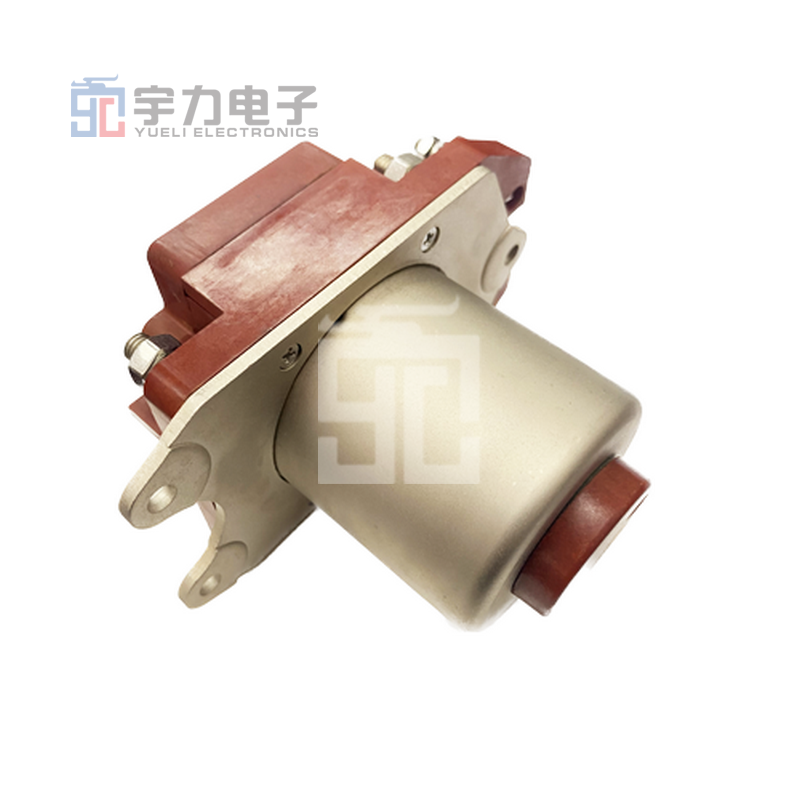Understanding DC Contactors: Essential Components for Your Electrical Systems
2025-05-28

DC contactors are essential devices in various electrical applications, particularly in the realm of electronic components. They play a vital role in controlling the flow of direct current (DC) in circuits, acting as a switch that can handle large loads. Understanding the functionality and application of DC contactors is crucial for professionals in the electronics industry.
At their core, DC contactors facilitate the reliable operation of electrical systems by enabling or interrupting the current flow. They consist of an electromagnetic coil, which, when energized, creates a magnetic field that draws a movable contact into alignment with a stationary contact. This action completes the circuit, allowing current to flow through the load. When the coil is de-energized, the contact returns to its original position, breaking the circuit and halting the current flow.
DC contactors are widely used in applications ranging from motor control to lighting systems, where the need to switch high currents on and off is essential. Their robustness and ability to handle high inrush currents make them ideal for environments with fluctuating loads. Furthermore, they are designed to operate efficiently in various conditions, ensuring longevity and reliability in demanding applications.
When selecting a DC contactor, several key factors should be considered. The first is the current rating, which must match or exceed the load requirements to prevent overheating or failure. Additionally, the voltage rating is crucial, as it determines the maximum voltage the contactor can handle safely. Environmental conditions, such as temperature and exposure to dust or moisture, also play a significant role in the performance and longevity of the contactor.
Another important aspect is the contact arrangement, which refers to the configuration of the contacts within the contactor. Depending on the specific application, contactors may feature normally open (NO) or normally closed (NC) contacts, influencing how the circuit operates when the contactor is inactive. Understanding these configurations will help professionals choose the right contactor for their needs.
In conclusion, DC contactors are indispensable components in modern electrical systems, providing reliable control of DC circuits. By understanding their function, application, and critical selection criteria, professionals can optimize their electronic designs and improve overall system performance. Whether you're involved in motor control, automation, or other electrical applications, DC contactors are a key element for ensuring efficient and safe operation.
At their core, DC contactors facilitate the reliable operation of electrical systems by enabling or interrupting the current flow. They consist of an electromagnetic coil, which, when energized, creates a magnetic field that draws a movable contact into alignment with a stationary contact. This action completes the circuit, allowing current to flow through the load. When the coil is de-energized, the contact returns to its original position, breaking the circuit and halting the current flow.
DC contactors are widely used in applications ranging from motor control to lighting systems, where the need to switch high currents on and off is essential. Their robustness and ability to handle high inrush currents make them ideal for environments with fluctuating loads. Furthermore, they are designed to operate efficiently in various conditions, ensuring longevity and reliability in demanding applications.
When selecting a DC contactor, several key factors should be considered. The first is the current rating, which must match or exceed the load requirements to prevent overheating or failure. Additionally, the voltage rating is crucial, as it determines the maximum voltage the contactor can handle safely. Environmental conditions, such as temperature and exposure to dust or moisture, also play a significant role in the performance and longevity of the contactor.
Another important aspect is the contact arrangement, which refers to the configuration of the contacts within the contactor. Depending on the specific application, contactors may feature normally open (NO) or normally closed (NC) contacts, influencing how the circuit operates when the contactor is inactive. Understanding these configurations will help professionals choose the right contactor for their needs.
In conclusion, DC contactors are indispensable components in modern electrical systems, providing reliable control of DC circuits. By understanding their function, application, and critical selection criteria, professionals can optimize their electronic designs and improve overall system performance. Whether you're involved in motor control, automation, or other electrical applications, DC contactors are a key element for ensuring efficient and safe operation.


